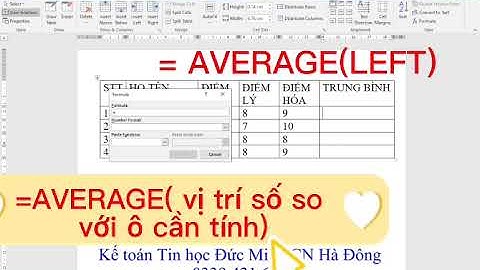When the subject of the sentence does not agree in number with the verb, the sentence lacks subject-verb agreement. To preserve the subject-verb agreement, singular subjects take verbs marked for singular. Plural subjects must have verbs that are marked for plural. Show
Rule to RememberA verb must agree in number and in person with its subject. Correcting Faulty Subject-Verb AgreementErrors typically occur when the writer does not know whether the subject is singular or plural. In the sentence above, friend is the only subject and the verb are flying should be in singular form (is flying) to agree with it in number. The phrase with his parents is a prepositional phrase and not part of the subject, so it has no effect on the verb form. Correct:My friend, with his parents, is flying in today to visit me and my family. Here is another example: Correct:Neither my mother nor my sisters are coming to visit me this summer. Subjects Followed By Prepositional PhrasesPrepositional phrases such as with, together with, along with, as well as are not part of the subject and, therefore, have no effect on the form of the verb. The verb needs to agree in number only with the subject of the sentence. Incorrect: Laura, together with a friend, practice yoga every day.Correct: Laura, together with a friend, practices yoga every day. Rule to RememberCompound subjects are joined by and need a plural verb. Compound SubjectsCompound subjects joined by and need a plural verb. Correct:Healthy diet and regular exercise are a necessity for a longer, happier life. When the compound subject is joined by or, nor, neither... nor, either... or and one part of the compound subject is singular and the other part is plural, the verb needs to agree with the part closest to it. Incorrect:Neither students nor their teacher are participating in this play.Correct:Neither students nor their teacher is participating in this play. Subjects Following VerbsIf the subject is following the verb in the sentence, rather than preceding it, it still has to agree with it in number. Incorrect:Here's my test scores.Correct:Here are my test scores. Rule to RememberCollective nouns which refer to a group of people or things can take either a singular verb or a plural one. The English language is full of fun little rules that can make learning the language a bit complicated. This article will help you to understand the difference between neither and either. Two words that sound similar but have different meanings. Definitions of Neither and EitherLet us first have a look at the definitions of the words. That should help to clear things up a bit. Firstly, neither has negative connotations. It means not either. This might sound a touch complicated, but just remember that neither is often defined as none of. The dictionary definition is not one and not the other of two things. For example, “Neither one of the children were well behaved.” Meaning none of the two children were well behaved. And, “Which one you would like to do? Neither, both are terrible.” Meaning, I do not want to do either option. Some other examples of neither being used correctly are: We have two dogs, neither one can sit. Jenny didn’t go to the park, neither did Jane. Neither Ben nor Max will talk to the other. And now let’s look at EitherMoving on, now looking at the word either. Either is used when referring to a choice between two options. For example, “Either one deserves to win.” Or, “Either you leave, or I will phone the police.” It can also be used in a negative way, instead of the words also or too. So, if you’re familiar with these words, you can mostly use either instead and the meaning will remain the same. Examples of this could be, “I haven’t visited there either”. Or, “This dress doesn’t fit me either.” Some other examples of using either correctly are: This is a good restaurant, it’s not expensive either. Would you like to eat now or later? Either is fine. You can either jog or run. Further InformationIt is often hard to test yourself on this rule, as the missing word sentences you will usually be given to practise, can be right with either option. However, this will change the meaning. For example: Either candidate is right for the job. Both candidates are right for the job. And Neither candidate is right for the job. Both candidates are wrong for the job. In this example, it is easy to see the difference between the words. The top tip below will help further! Top Tip for remembering how to use Neither or EitherIf you need to remember which way around these two words belong, there is a simple trick to help you. Neither, is negative. You can remember this because neither and negative both start with an ‘n’. Summary…Remember, neither is often used when both options are not acceptable. Either tends to be used in a positive way, when one option will be chosen. If you get confused with these two words, do not worry! People that have been brought up speaking English still get these wrong. Practise makes perfect, so look at the examples given and remember the top tip! Enjoyed reading this? Take a look at our latest English grammar article, ‘Passed vs. Past: What’s the Difference?’… Is it correct to say neither of them?In formal styles, we use neither of with a singular verb when it is the subject. However, in informal speaking, people often use plural verbs: Neither of my best friends was around. Neither of them were interested in going to university. How do you use neither of those in a sentence?Singular. “Neither of those IS what I ordered.” Neither is the subject, and “of those” modifies it. Think of the subject of the sentence as omitting the word “one”. What is the difference between either of and neither of?These few short rules will help you next time you wonder about either and neither. In negation: either comes last and combines with a negated verb; neither comes first and combines with a positive verb. Alone: either means “one of the two”; neither means “none of the two.” Use a singular verb. What is the difference between none of them and neither of them?We use 'none' to talk about not one of a group of three or more things or people. We use 'neither' to talk about not one or the other of two people or things. |




















